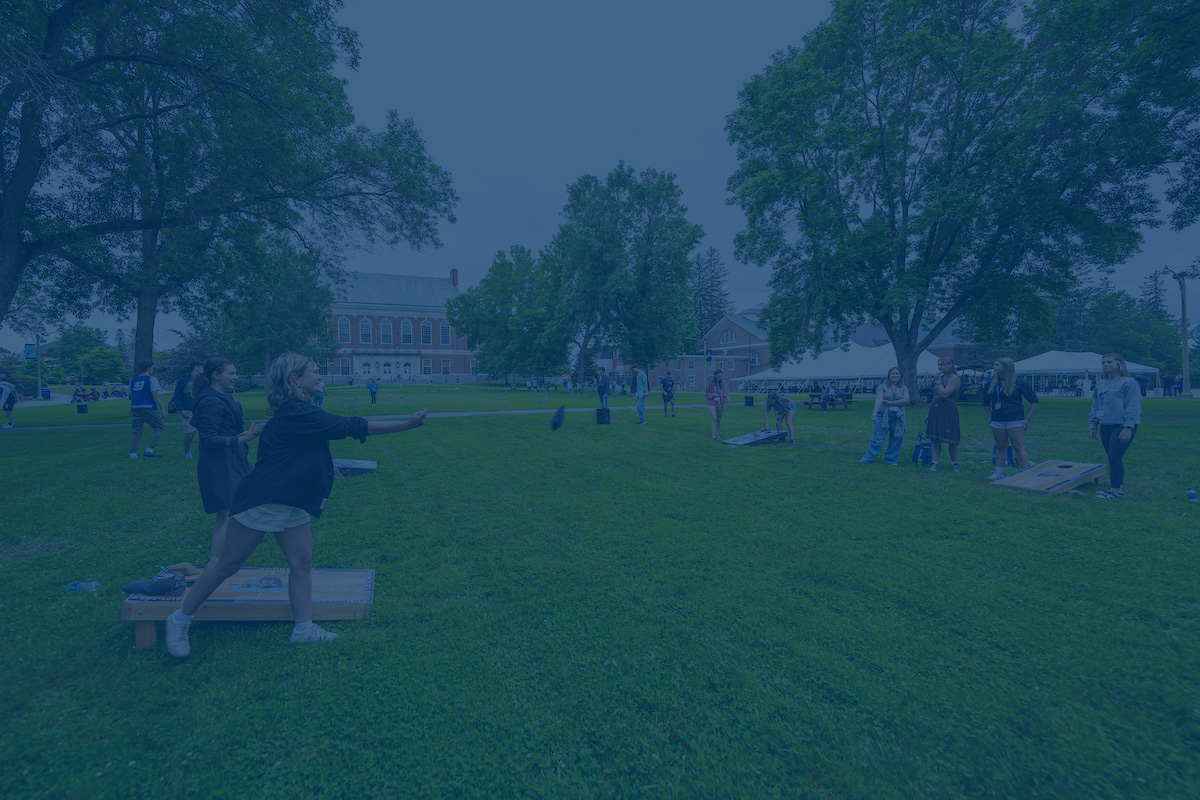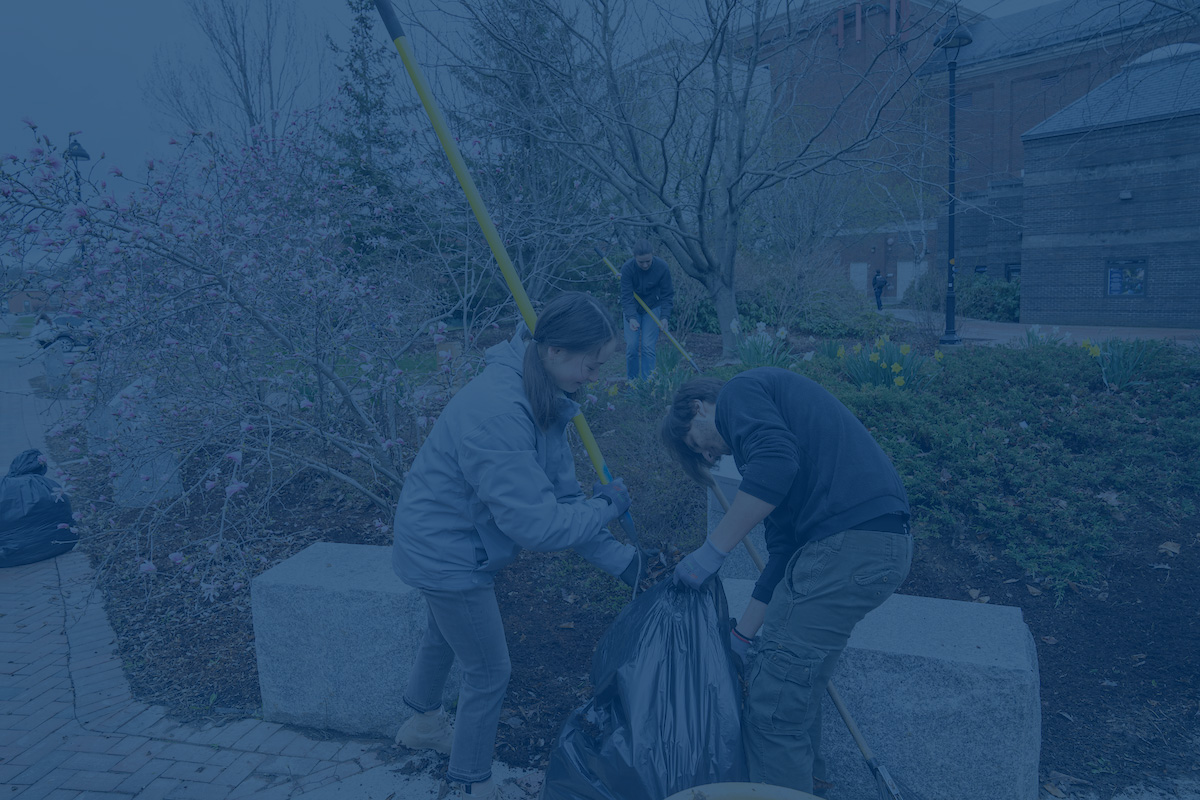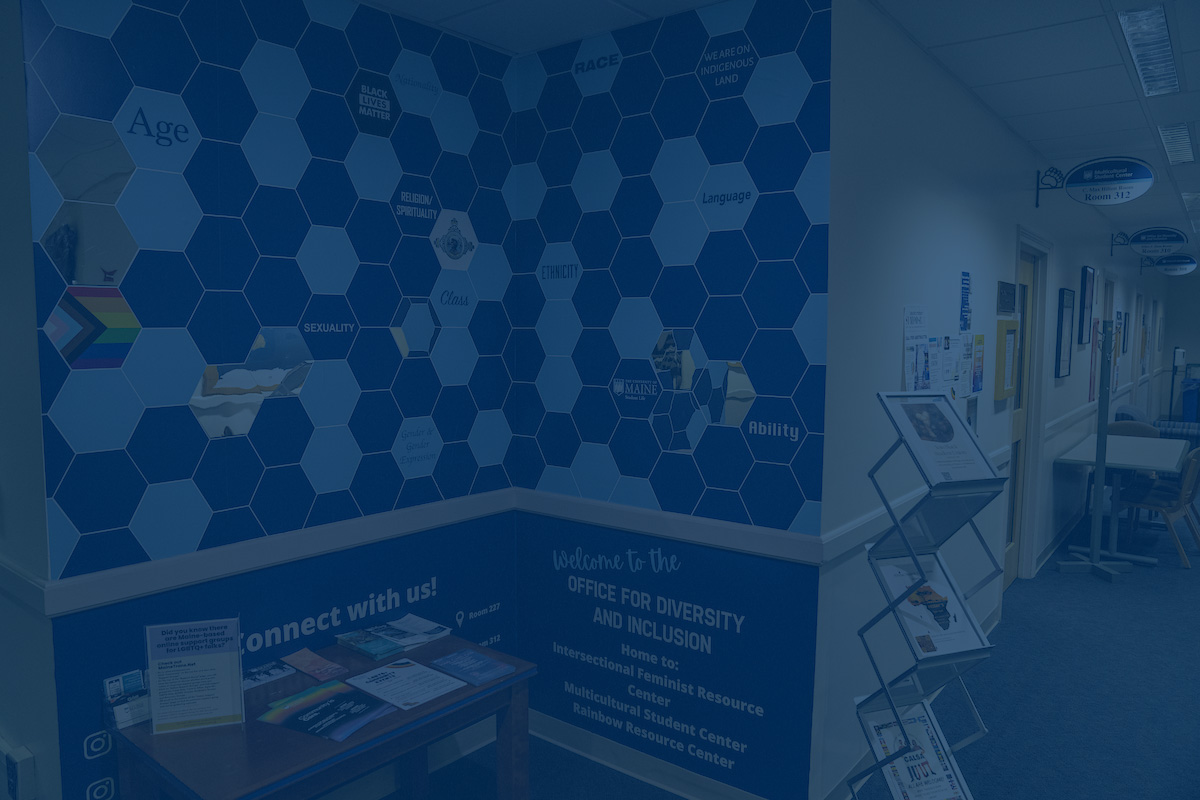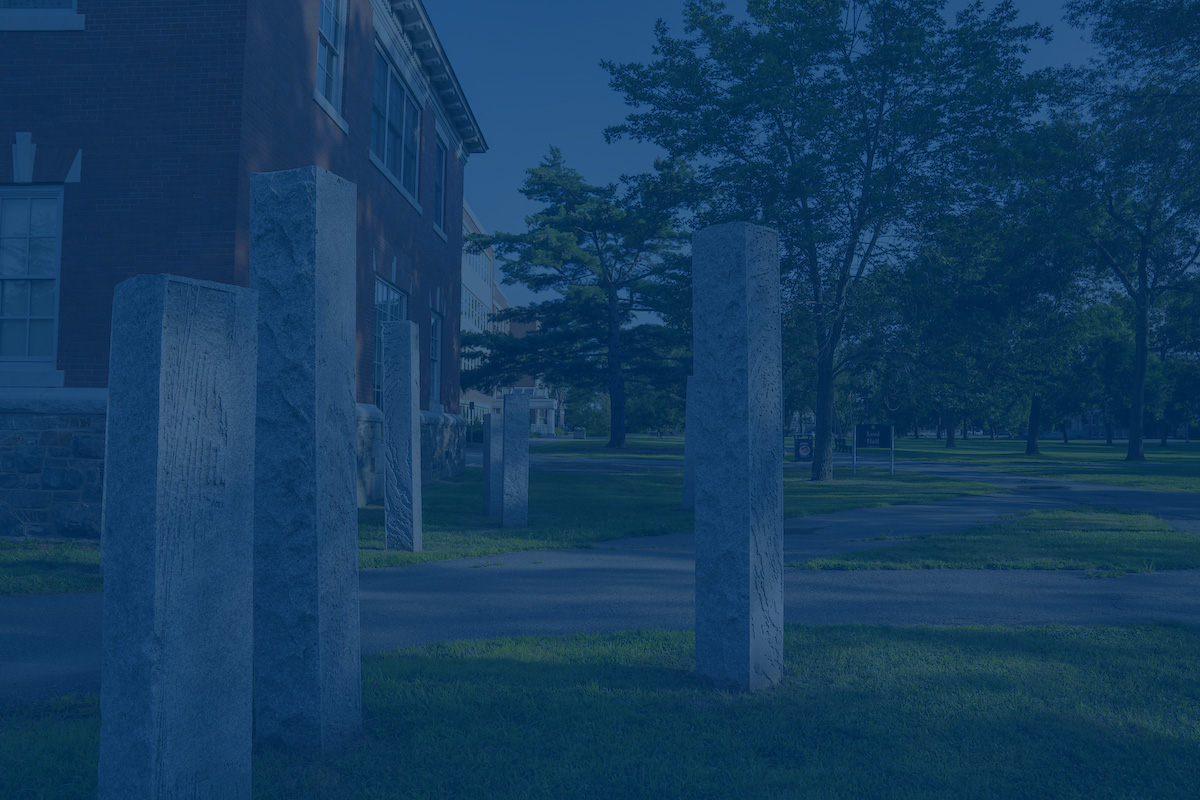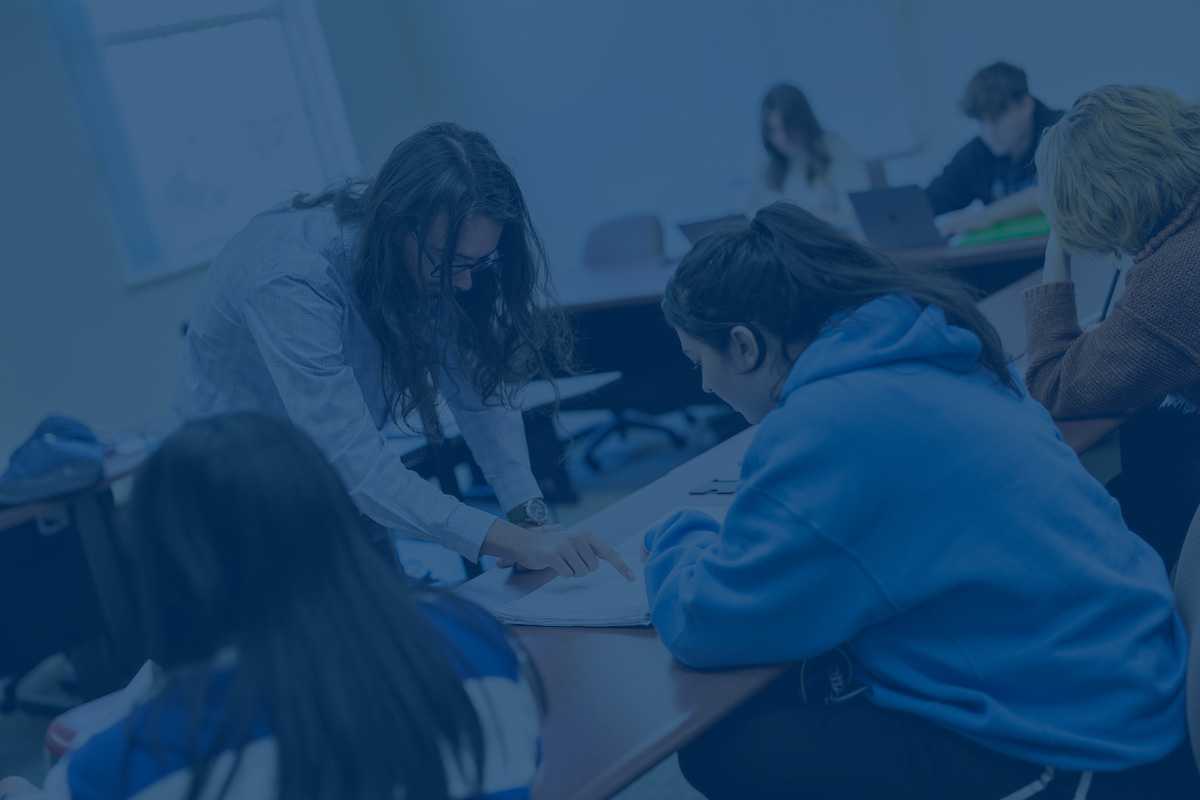Current Students
Advising
Students accepted into the School of Nursing have a designated Academic Advisor for the first three semesters who specializes in the general education curriculum requirements. They transition their advisement to a nursing-specific Academic Advisor in semester four who remains their advisor through completion of the program.

First and Second Year Advisor:
Gwyneth Esty-Kendall, Student Success and Wellness Coordinator
gwyneth.estykendall@maine.edu

Third and Fourth Year Advisor:
Annie Smith, Program Evaluation and Quality Coordinator, Lecturer of Nursing
annie.smith@maine.edu
With over a decade of experience in the mental health field, Annie brings a deep appreciation of human relationships and connection to academic advising. She enjoys helping students navigate the rigorous and rewarding nursing curriculum and is looking forward to utilizing her new journey of Mindfulness Based Stress Reduction to promote student success!
Helpful Downloadable Forms
Peer Tutoring Center
The UMaine School of Nursing (SON) Peer Support Program is a comprehensive initiative designed to empower undergraduate nursing students throughout their academic journey. Our program offers peer tutoring for over 10 nursing courses, spanning all 4 years of the program. With a variety of drop-in times available, students can participate in both group and individual sessions tailored to their specific needs. Our SON peer tutors also serve as lab teaching assistants for the courses they tutor, ensuring accessibility and integration into the academic experience. By connecting students with trained peers who have advanced in the program, this initiative fosters independent excellence while naturally cultivating mentorship opportunities.
Learn more:
Gwyneth Esty-Kendall, Student Success and Wellness Coordinator
Amy Barnes, Learning Resource Center Manager
Peer Mentoring
The UMaine School of Nursing (SON) Peer Mentoring Project is a community-based initiative that provides holistic support for second-level nursing undergraduate students, complementing our SON Peer Support Program. Through this project, fourth-level nursing students enrolled in NUR 444 step into the role of mentors, offering resources and guidance to their second-level counterparts enrolled in NUR 103.
At the beginning of the semester, small group pods are formed, consisting of 4-5 senior and sophomore students who share similar characteristics. These groupings are created based on insights gathered from a ‘Getting to Know You’ survey. Throughout the semester, these pods meet monthly to discuss assigned topics, including self-care, time management, organizational skills, resources accessibility, professionalism, and evidenced-based practice. As fourth-level students apply leadership and team-building skills, they can also reflect on their academic journeys. Second-year students are given the opportunity to build stronger connections with the school and upper-level nursing students.
Learn more:
Learning Resource and Simulation Education Center
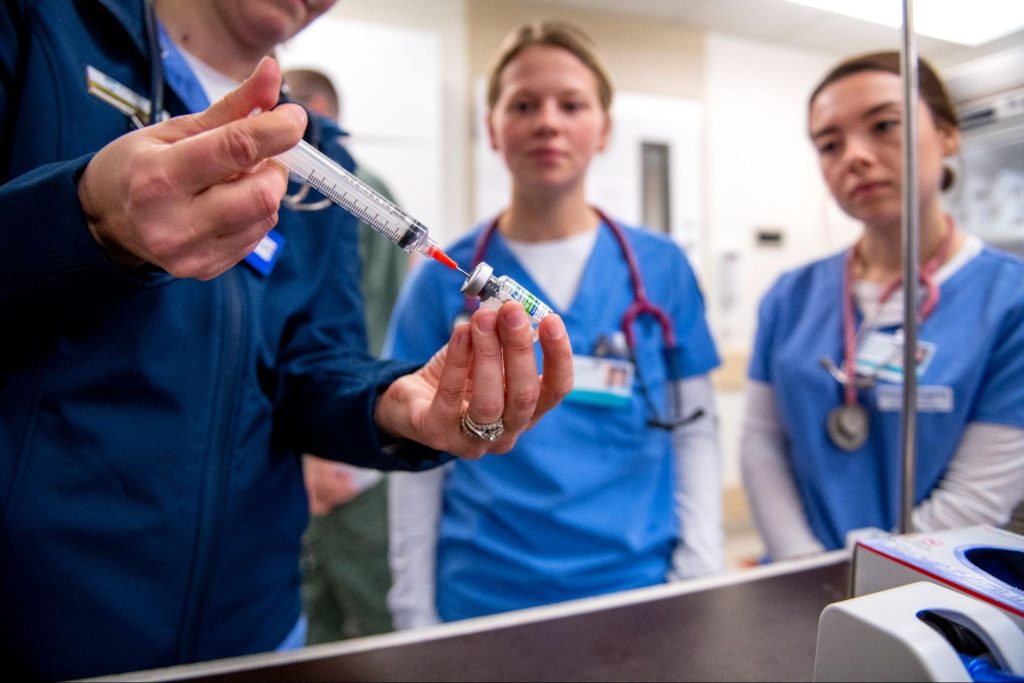
The mission of the Learning Resource and Simulation Education Center (LRC) is to provide a collection of resources and space to support the clinical learning needs of the curriculum of the School of Nursing and to serve the University of Maine community. These resources are specific to meet the needs of active learning in the areas of health assessment, medication administration, skilled nursing care, therapeutic communication, clinical judgment, and critical thinking for the purpose of competency-based assessments to meet program level outcomes. In addition, the LRC provides a learning environment that is safe, supportive, and conducive to the socialization of students into the clinical practice of nursing.
Location: The LRC is located on the first floor of Dunn Hall (rooms 112/114, 115, 124/128, 130, 140, 142, & 144).
Times: The exact hours of operation of the LRC will vary each semester, based on needs of the programs.
The LRC staff will be available M, T, TH, F, 8-2, with additional hours on Wednesdays, afternoons, and evenings based on the availability of student employees, staff, and schedule of laboratory courses. Additional hours will be published each semester and made available to faculty and students.
Open Lab: The lab is open to all students on Fridays, 9a-12p, for the purpose of practicing clinical skills. Additional hours may be available upon request. Contact the LRC manager in advance for space availability.
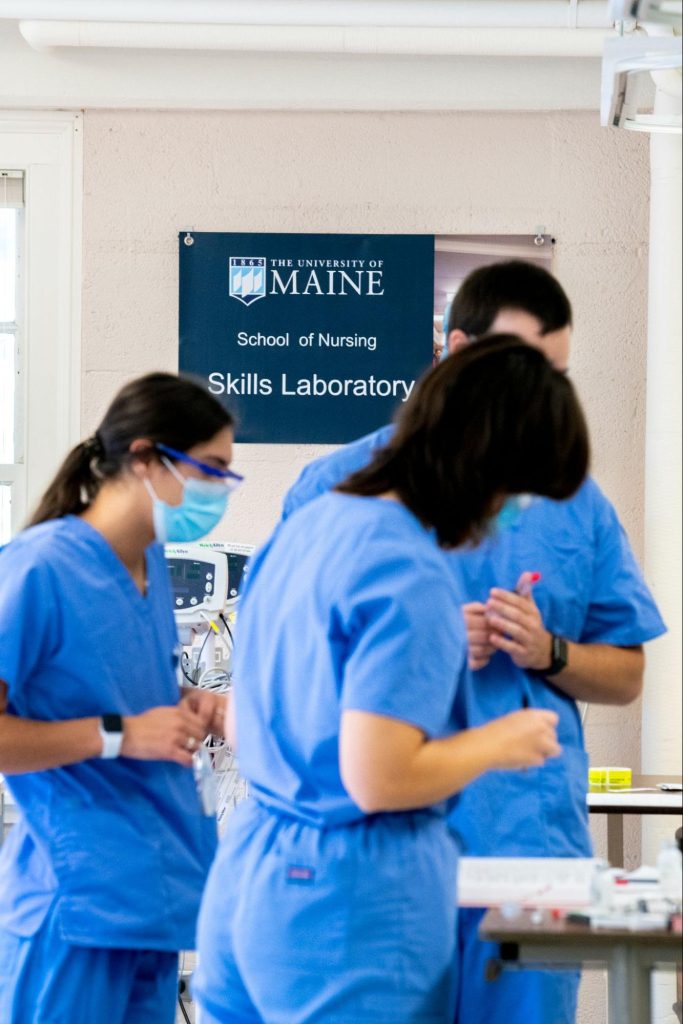
Usage: Most equipment and lab space can be made available to students. Any requests for use of the lab, equipment, and space outside of regularly scheduled labs, must be communicated via email to the lab manager at least 1 week in advance.
Please use all equipment as it is intended. Ask LRC staff for assistance if you have questions about how to use equipment and report any details regarding broken or faulty equipment to LRC staff.
Clean hands and pencils, no pens, are required when working with any of the LRC manikins.
All equipment and supplies are expected to be left where and how it was set-up. All trash and personal effects should be managed accordingly.
Code of Conduct: Students are expected to conduct themselves in a professional manner during all laboratory experiences – language, confidentiality, and mutual respect.
Students are expected to do a “last look” before leaving any lab to return supplies and equipment to where they found them (i.e. bed low, side-rails up, and linens made), dispose of trash, and remove personal belongings.
Students should refer to individual course syllabi for specifics related to all lab experiences for the course they are currently enrolled in. Course related questions should be directed to course faculty. Attendance is mandatory for all assigned laboratory and simulation experiences. The use of mobile phones is prohibited during skills and simulation laboratory sessions.
Ethics: Students are expected to maintain the privacy and confidentiality of any standardized patients, their peers, and competency or simulation course content. The use of social media, taking photos, and/or posting any identifiable information is strictly prohibited. Any violation of this policy will be regarded as a HIPPA violation and result in disciplinary action.
The LRC is considered a safe space for the purpose of developing and demonstrating professional nursing practice. Every effort will be made by faculty and staff to create this type of learning environment.
*Any breach of LRC expectations may result in being asked to leave the LRC.
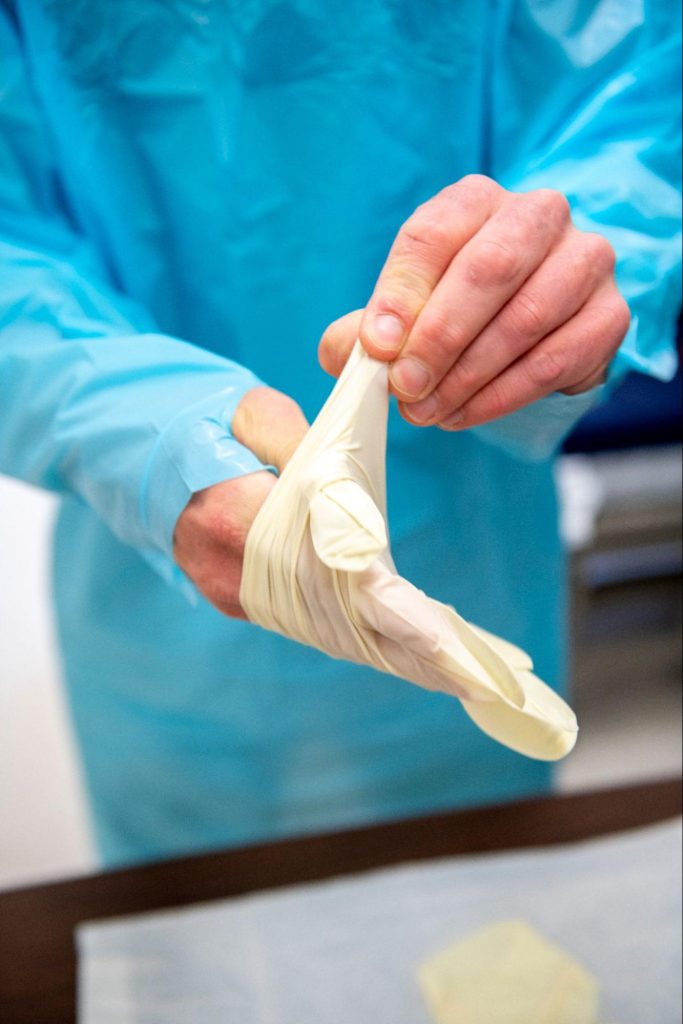
Safety: All medications, intravenous fluids, and related equipment provided for laboratory experiences are placebos and/or not intended for human use.
The use of needles, syringes, and IV equipment should be under the direct supervision of Nursing Faculty or LRC Staff.
Any injury in the lab should be reported to faculty/staff and the LRC manager. An incident report needs to be completed & submitted online by the supervising faculty.
Please report any suspicious or concerning activity, odors, or alerts to LRC Staff.
In the event of an emergency, there is a phone in the skills lab, room 140, and the simulation control room in room 124/128.
Fire exit pathways are posted throughout the LRC for reference in the event of an emergency. No food is allowed in the clinical areas of the lab. All drink containers must have covers.
If you have a fever or other symptoms of infection on your scheduled day in the lab, stay home and communicate with faculty ASAP.
Appropriate hand hygiene and cough etiquette are to be practiced as well as other guidelines specified by the University or the CDC.
Please be sure to report lab and or clinical incidents with this form
Tours: Tours of the LRC are scheduled through the admissions office and in advance for prospective students, faculty, administration or donors. Tours are most likely to occur during the designated open lab times for Open House or Admitted Student Days, but not always. Tours will not be permitted during simulation experiences or competency testing.
Director of the Learning Resource Center: Amanda Henderson, MSN, RNC-MNN, IBCLC, CCE, Office: 243 Dunn Hall, Phone: 207.581.2588, Email: amanda.b.henderson@maine.edu
Manager of the Learning Resource Center: Amy Barnes, BSN, RN, Office: 129 Dunn Hall, Phone: 207. 581.3484, Email: amy.barnes@maine.edu
Lab Technician(s): Student nurse lab employees, Office: 134J Dunn Hall
Learning Resource and Simulation Education Center

The mission of the Learning Resource and Simulation Education Center (LRC) is to provide a collection of resources and space to support the clinical learning needs of the curriculum of the School of Nursing and to serve the University of Maine community. These resources are specific to meet the needs of active learning in the areas of health assessment, medication administration, skilled nursing care, therapeutic communication, clinical judgment, and critical thinking for the purpose of competency-based assessments to meet program level outcomes. In addition, the LRC provides a learning environment that is safe, supportive, and conducive to the socialization of students into the clinical practice of nursing.
Location: The LRC is located on the first floor of Dunn Hall (rooms 112/114, 115, 124/128, 130, 140, 142, & 144).
Times: The exact hours of operation of the LRC will vary each semester, based on needs of the programs.
The LRC staff will be available M, T, TH, F, 8-2, with additional hours on Wednesdays, afternoons, and evenings based on the availability of student employees, staff, and schedule of laboratory courses. Additional hours will be published each semester and made available to faculty and students.
Open Lab: The lab is open to all students on Fridays, 9a-12p, for the purpose of practicing clinical skills. Additional hours may be available upon request. Contact the LRC manager in advance for space availability.

Usage: Most equipment and lab space can be made available to students. Any requests for use of the lab, equipment, and space outside of regularly scheduled labs, must be communicated via email to the lab manager at least 1 week in advance.
Please use all equipment as it is intended. Ask LRC staff for assistance if you have questions about how to use equipment and report any details regarding broken or faulty equipment to LRC staff.
Clean hands and pencils, no pens, are required when working with any of the LRC manikins.
All equipment and supplies are expected to be left where and how it was set-up. All trash and personal effects should be managed accordingly.
Code of Conduct: Students are expected to conduct themselves in a professional manner during all laboratory experiences – language, confidentiality, and mutual respect.
Students are expected to do a “last look” before leaving any lab to return supplies and equipment to where they found them (i.e. bed low, side-rails up, and linens made), dispose of trash, and remove personal belongings.
Students should refer to individual course syllabi for specifics related to all lab experiences for the course they are currently enrolled in. Course related questions should be directed to course faculty. Attendance is mandatory for all assigned laboratory and simulation experiences. The use of mobile phones is prohibited during skills and simulation laboratory sessions.
Ethics: Students are expected to maintain the privacy and confidentiality of any standardized patients, their peers, and competency or simulation course content. The use of social media, taking photos, and/or posting any identifiable information is strictly prohibited. Any violation of this policy will be regarded as a HIPPA violation and result in disciplinary action.
The LRC is considered a safe space for the purpose of developing and demonstrating professional nursing practice. Every effort will be made by faculty and staff to create this type of learning environment.
*Any breach of LRC expectations may result in being asked to leave the LRC.

Safety: All medications, intravenous fluids, and related equipment provided for laboratory experiences are placebos and/or not intended for human use.
The use of needles, syringes, and IV equipment should be under the direct supervision of Nursing Faculty or LRC Staff.
Any injury in the lab should be reported to faculty/staff and the LRC manager. An incident report needs to be completed & submitted online by the supervising faculty.
Please report any suspicious or concerning activity, odors, or alerts to LRC Staff.
In the event of an emergency, there is a phone in the skills lab, room 140, and the simulation control room in room 124/128.
Fire exit pathways are posted throughout the LRC for reference in the event of an emergency. No food is allowed in the clinical areas of the lab. All drink containers must have covers.
If you have a fever or other symptoms of infection on your scheduled day in the lab, stay home and communicate with faculty ASAP.
Appropriate hand hygiene and cough etiquette are to be practiced as well as other guidelines specified by the University or the CDC.
Please be sure to report lab and or clinical incidents with this form
Tours: Tours of the LRC are scheduled through the admissions office and in advance for prospective students, faculty, administration or donors. Tours are most likely to occur during the designated open lab times for Open House or Admitted Student Days, but not always. Tours will not be permitted during simulation experiences or competency testing.
Director of the Learning Resource Center: Amanda Henderson, MSN, RNC-MNN, IBCLC, CCE, Office: 243 Dunn Hall, Phone: 207.581.2588, Email: amanda.b.henderson@maine.edu
Manager of the Learning Resource Center: Amy Barnes, BSN, RN, Office: 129 Dunn Hall, Phone: 207. 581.3484, Email: amy.barnes@maine.edu
Lab Technician(s): Student nurse lab employees, Office: 134J Dunn Hall

